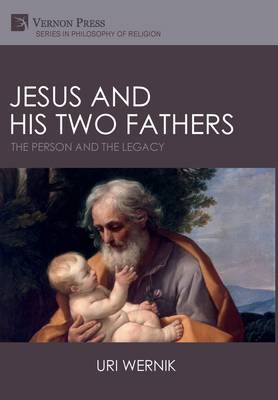
- Afhalen na 1 uur in een winkel met voorraad
- Gratis thuislevering in België vanaf € 30
- Ruim aanbod met 7 miljoen producten
- Afhalen na 1 uur in een winkel met voorraad
- Gratis thuislevering in België vanaf € 30
- Ruim aanbod met 7 miljoen producten
Omschrijving
Who was Jesus in real life? What inspired his ideas? What did he aim to achieve? What drew his disciples to him? How was he influenced by them? Unlike the many "quests for the historical Jesus", as a psychologist, Wernik answers these questions from the perspectives of psychology and the social sciences.
This book's central axis is the theme of the father. It looks at the family constellation into which Jesus was born, where he was raised by a stepfather. It also investigates the relationship he develops with God, his father in heaven; and examines how he became a father figure to his disciples and followers. It is hoped that readers will also think about their own father when reading, the one usually called "dad".
Jesus and His Two Fathers sees Jesus' love of peace and appeasement doctrine, as well as his difficulty with anger control, in the context of his upbringing and family constellation. Wernik offers a solution to the problem of the "missing years" which were unaccounted in the New Testament. He examines the internal conflicts in Jesus' movement, and the tensions with the religious establishment, which led to his death. Jesus did not see himself as the Messiah, and Wernik shows him in fact as a great reformer of Judaism, who changed the notions of righteousness, the relation of the believers to God, and the status of the commandments.
This book will be of interest to scholars, teachers and students in the humanities and social sciences, among others in the fields of religion, especially Christianity and Judaism. It is aimed at interested discerning readers of non-fiction in these areas.
Specificaties
Betrokkenen
- Auteur(s):
- Uitgeverij:
Inhoud
- Aantal bladzijden:
- 234
- Taal:
- Engels
- Reeks:
Eigenschappen
- Productcode (EAN):
- 9781622737703
- Verschijningsdatum:
- 4/10/2019
- Uitvoering:
- Hardcover
- Formaat:
- Genaaid
- Afmetingen:
- 152 mm x 229 mm
- Gewicht:
- 467 g

Alleen bij Standaard Boekhandel
Beoordelingen
We publiceren alleen reviews die voldoen aan de voorwaarden voor reviews. Bekijk onze voorwaarden voor reviews.









